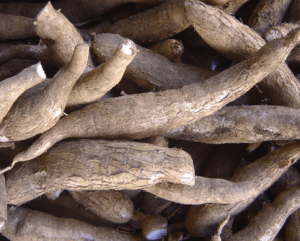Government lauds WACCI for enhancing food security
 The University of Ghana’s West Africa Centre for Crop Improvement (WACCI) has been commended for its initiative towards enhancing food security in Ghana and the West African sub-region.
The University of Ghana’s West Africa Centre for Crop Improvement (WACCI) has been commended for its initiative towards enhancing food security in Ghana and the West African sub-region.
Mrs Mona Quartey, a Deputy Minister of Finance, commended WACCI for being one of the most outstanding Africa Centres of Excellence (ACE) in the training of plant breeders.
Speaking at the sod-turning ceremony for the construction of a multipurpose building for WACCI at Legon, Mrs Quartey said economic growth was driven by new ideas and discoveries that resulted in better products and more efficient technologies.
She said: “With a rapid transforming labour market, the ACE Project is appropriate at this time for ensuring that Ghana’s tertiary education meets acceptable international standards through research and partnership among global tertiary institutions towards the achievements of the Sustainable Development Goals.”
She said it was envisaged that WACCI would not only address the brain drain syndrome but also have graduates trained locally to embark on research to support the agricultural sector.
Mrs Eunice Ackwerh, the Senior Education Specialist, World Bank Country Office, said the Bank had noted with satisfaction the achievements of WACCI in attracting students from the West Africa sub-region and beyond; with regional students accounting for 66 per cent of enrolment.
Professor Eric Yirenkyi Danquah, the Director of WACCI, said the new building, estimated to cost $2.4 million, would be completed in 18 months.
He said the facility would house offices, lecture rooms, a bioinformatics platform, a seed science laboratory, a tissue culture laboratory, library and conference rooms.
Prof. Danquah said the completion of the building would lead to the scaling up of world-class PhD training in Plant Breeding and MPhil in Seed Science and Technology.
Prof Danquah said since its inception WACCI had enrolled 98 PhD students from 16 West, East and Central African countries and had graduated 35 highly qualified plant breeders.
“As a result of the outcome of students PhD research projects, national crop improvement programmes have been revived in the sub-region,” he said.
He said currently the programme had students from Ghana, Burkina Faso, Cameroon, Niger, Nigeria, Mali, Kenya, Senegal, Sudan, Malawi, Togo and Uganda.
Prof. Danquah said WACCI is expected to graduate, in July 2017, a record number of 18 PhD students in plant breeding.
Prof Ebenezer Oduro Owusu, the Vice-Chancellor of the University of Ghana, commended WACCI for its continued success saying the University Management would put in place necessary measures to ensure its sustainability.
He appealed to government to allow the public universities maintain and use their Internally Generated Funds (IGFs) for their development projects.
Prof Mohammed Salifu, the Executive Secretary of the National Council for Tertiary Education, who represented the Minister of Education, said Ghana hosted three of the 22 ACEs in nine West and Central African countries.
The University of Ghana has two of these Centres – WACCI and the West African Centre for Cell Biology of Infectious Pathogens- with the third, Centre for Water and Environmental Sanitation, at the Kwame Nkrumah University of Science and Technology.
Under the ACE Project, the World Bank is making available a grant of eight million dollars to be disbursed intermittently to each centre.
WACCI was established in June 2007 with funding from the Alliance for a Green Revolution in Africa to train 40 Plant Breeders at the PhD level at the University of Ghana.
The Centre now has evolved into the largest PhD in Plant Breeding education programme in Africa, having enrolled 98 PhD students from 16 countries and graduated 35 who are at the forefront of developing high yielding and climate-smart varieties of staple crops.
Source: GNA
